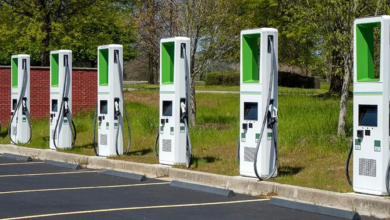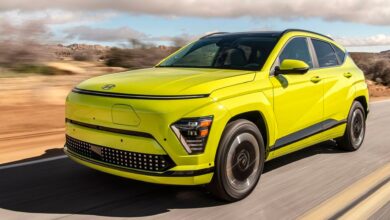NLPC to General Motors: Electric Vehicles are Unpopular and Unprofitable

National Legal and Policy Center presented a “Revisit Emissions Reduction Pay Incentives” proposal at the General Motors Company‘s 2024 annual meeting of shareholders today. The proposal asks the company to revisit its executive compensation packages and consider removing those tied to the company’s electric vehicle program. The corporate media has sold EVs as a solution to the non-existent “problem” of climate change, yet they’re unpopular and unprofitable, even with extensive subsidies provided by the Inflation Reduction Act. Yet the company, led by Chair and CEO Mary Barra (pictured above), has continued to pour resources into its EV division, at the expense of its internal combustion engine vehicles.
GM’s board of directors opposed our proposal, as explained on page 82 of the company’s 2024 proxy statement. NLPC’s response to the board’s opposition statement was filed with the Securities and Exchange Commission last month.
Speaking as sponsor of the proposal was Luke Perlot, associate director of NLPC’s Corporate Integrity Project. His three-minute remarks can be heard here, and a transcript follows:
Good morning,
My name is Luke Perlot and I am presenting Proposal No. 5 for the National Legal and Policy Center.
General Motors is a storied automaker with a legacy of leading the automotive industry in innovation and market presence. However, under the leadership of CEO Mary Barra, the current executive compensation framework, which heavily incentivizes electric vehicle production, is misaligned with the market realities of electric vehicles and the best interests of GM shareholders.
CEO Mary Barra has championed a climate policy based on the so-called “scientific consensus.” This popular narrative suggests there will be imminent catastrophic impacts to environment and to humans from carbon emissions unless drastic changes are made, such as a wholesale shift to electric vehicles.
However, this narrative has become highly contested. Such dire predictions have failed to materialize and the models predicting future climate scenarios significantly overestimate the impact of carbon emissions. Furthermore, the push towards electric vehicles comes with substantial economic, logistical, and ethical concerns.
GM’s strategy to heavily invest in EVs, influenced by current executive pay incentives, may not align with genuine market demand or economic viability. Over 5,000 auto dealers signed an open letter to President Biden warning that there is little demand for electric vehicles. Moreover, forecasts for GM’s EV division do not show positive pre-tax earnings until potentially 2025.
Further, GM has indicated that the push to grow its EV program is driven by the subsidies included in the controversial Inflation Reduction Act. Yet these subsidies may ultimately be repealed under a new government in 2025. GM’s focus should be on maximizing shareholder value by responding to real consumer demands and market forces, not by chasing subsidies for unprofitable ventures.
Additionally, the production of electric vehicles heavily relies on rare-earth elements, which are predominantly mined and processed in regions with lax environmental regulations and significant human rights abuses. The extraction of these elements often results in severe ecological degradation, including soil contamination, water pollution, and deforestation, as well as health problems for the local communities. Moreover, the global supply chain for these elements is fraught with ethical challenges, notably the use of forced labor. Lastly, rare earth elements are almost exclusively processed in China, a geopolitical adversary of the United States.
Despite the many issues with electric vehicles, Mary Barra and the rest of the GM’s executive team have continued to pivot the company’s resources towards this unprofitable endeavor. The company’s misguided executive incentives may be partially to blame, and they should be reevaluated.
Thus, we urge our fellow shareholders to vote FOR Item No. 5.
Read NLPC’s shareholder proposal for the General Motors annual meeting here.
Listen to Luke Perlot’s presentation of the proposal at the meeting here.
Read NLPC’s respons to the company’s opposition to our shareholder proposal, filed with the SEC, here.



